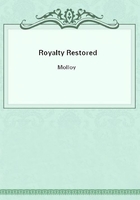
第66章 CHAPTER XI.(3)
All through the latter part of May, and the whole of the following month, this flight from the dread enemy of mankind continued; presenting a melancholy spectacle to those who remained, until at last the capital seemed veritably a city of the dead. But for the credit of humanity be it stated, that not all possessed of health and wealth abandoned the town. Prominent amongst those who remained were the Duke of Albemarle, Lord Craven, the lord mayor, Sir John Laurence, some of his aldermen, and a goodly number of physicians, chirurgeons, and apothecaries, all of whom by their skill or exertions sought to check the hungry ravages of death. The offices which medical men voluntarily performed during this period of dire affliction were loathsome to a terrible degree. "I commonly dressed forty sores in a day," says Dr. Boghurst, whose simple words convey a forcible idea of his nobility; "held the pulse of patients sweating in their beds half a quarter of an hour together; let blood; administered clysters to the sick; held them up in their beds to keep them from strangling and choking, half an hour together commonly, and suffered their breathing in my face several times when they were dying; eat and drank with them, especially those that had sores; sat down by their bedsides and upon their beds, discoursing with them an hour together. If Ihad time I stayed by them to see them die. Then if people had nobody to help them (for help was scarce at such time and place)I helped to lay them forth out of the bed, and afterwards into the coffin; and last of all, accompanied them to the ground."Of the physicians remaining in the city, nine fell a sacrifice to duty. Amongst those who survived was the learned Dr. Nathaniel Hodges, who was spared to meet a philanthropist's fate in penury and neglect. [Dr. Hodges subsequently wrote a work entitled "Loimologia; or, an Historical Account of the Plague of London,"first published in 1672; of which, together with a collection of the bills of mortality for 1665, entitled "London's Dreadful Visitation," and a pamphlet by the Rev. Thomas Vincent, "God's Terrible Voice in the City," printed in 1667, De Foe largely availed himself in writing his vivid but unreliable "Journal of the Plague Year," which first saw the light in 1722.] The king had, on outbreak of the distemper, shown solicitude for his citizens by summoning a privy council, when a committee of peers was formed for "Prevention and Spreading of the Infection."Under their orders the College of Physicians drew up "Certain necessary Directions for the Prevention and Cure of the Plague, with Divers remedies for small Change," which were printed in pamphlet form, and widely distributed amongst the people. [We learn that at this time the College was stored with "men of learning, virtue, and probity, nothing acquainted with the little arts of getting a name by plotting against the honesty and credulity of the people." The preions given by this worthy body were consequently received with a simple faith which later and more sceptical generations might deny them. Perhaps the most remarkable of these directions, given under the heading of "Medicines External," was the following: "Pull off the feathers from the tails of living cocks, hens, pigeons, or chickens, and holding their bills, hold them hard to the botch or swelling, and so keep them at that part until they die, and by that means draw out the poison. It is good to apply a cupping glass, or embers in a dish, with a handful of sorrel upon the embers."]
The lord mayor, having likewise the welfare of the people at heart, "conceived and published" rules to be observed, and orders to be obeyed, by them during this visitation. These directed the appointment of two examiners for every parish, who were bound to discover those who were sick, and inquire into the nature of their illness: and finding persons afflicted by plague, they, with the members of their family and domestics, were to be confined in their houses. These were to be securely locked outside, and guarded day and night by watchmen, whose duty it should be to prevent persons entering or leaving those habitations; as likewise to perform such offices as were required, such as conveying medicines and food. And all houses visited by the distemper were to be forthwith marked on the door by a red cross a foot long, with the words LORD HAVE MERCY UPONUS set close over the same sacred sign. Female searchers, "such as are of honest reputation, and of the best sort as can be got of the kind," were selected that they might report of what disease people died; such women not being permitted during this visitation to use any public work or employment, or keep shop or stall, or wash linen for the people. Nurses to attend the afflicted deserted by their friends were also appointed. And inasmuch as multitudes of idle rogues and wandering beggars swarming the city were a great means of spreading disease, the constables had orders not to suffer their presence in the streets. And dogs and cats, being domestic animals, apt to run from house to house, and carry infection in their fur and hair, an order was made that they should be killed, and an officer nominated to see it carried into execution. It was computed that, in accordance with this edict, forty thousand dogs, and five times that number of cats, were massacred.